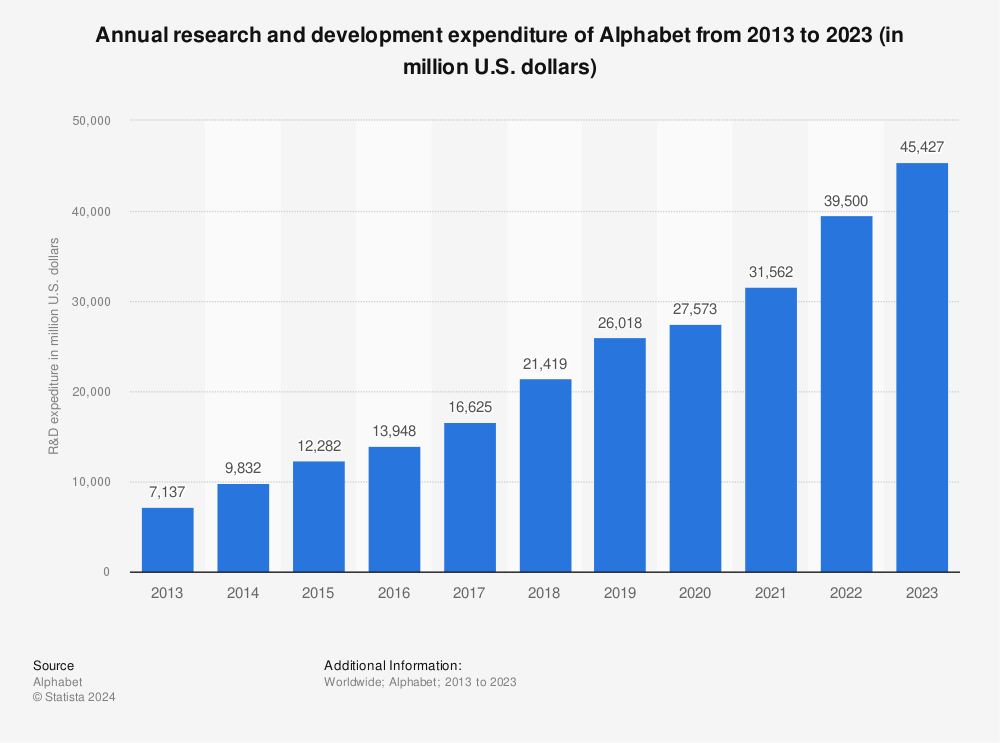Google reportedly uses a strategy called 'pantry mode' that leads to it sitting on new ideas until a competitor forces its hand
Justin Sullivan/Getty Images
- Google often sits on new products until a competitor prompts action, according to a new report.
- Current and former Google executives told the NYT that Google's CEO often struggles with big decisions.
- One exiting Google exec wrote in a blog post that Google's risk aversion is a barrier to innovation.
- See more stories on Insider's business page.
Google uses a research-and-development strategy known within the company as 'pantry mode,' according to a report Monday in The New York Times. When teams create new products, they often sit on them until a competitor announces something new or similar that Google decides it should respond to, according to the report.
Despite Google's soaring profit and revenue, some former and current Google executives told the Times they worry that 'pantry mode' is just one indicator of an increasingly risk-averse culture that's tied to CEO Sundar Pichai's struggle to make important decisions in a timely manner.
Pichai's leadership style allows the Google management team to make many decisions without his sign-off, according to the Times. Some Google employees view this as a lack of ego, while others see it as an inability to take action due to an obsession with what the public might think, according to the report.
A spokesperson for Google did not immediately respond to a request for comment, but the company provided other executives to the Times to speak to Pichai's leadership style, which you can read here, and said employees had good things to say about him in internal surveys.
Google is spending more than ever on R&D under Pichai
While it's not clear exactly which products or services have been developed as part of a "pantry mode" strategy, Google has steadily spent more money on researching and developing new products during Pichai's tenure as CEO.
Pichai took over as chief executive in 2015, and the company's R&D costs have grown every year since. Google's parent company, Alphabet, which Pichai became CEO of at the end of 2019, spent $27.57 billion on R&D in 2020.
The same year, Google discontinued dozens of products such as the Google Play Music and Google Station, which joined a long list of other retired Google products known as "the Google graveyard."
Comparatively, Facebook's R&D expenses amounted to $18.45 billion, with Apple spending slightly more at $18.75 billion. Out of the big four tech giants, Amazon has the highest R&D spending at $42.7 billion.
Building off rival products is not a strategy isolated to Google. Last summer, newly released emails from April 2012 show Facebook CEO Mark Zuckerberg and other executives agreeing that "copying is faster than innovating."
In August 2020, Facebook launched Instagram Reels in an attempt to compete with Tik Tok. Most social-media companies have adopted a version of Snapchat's ephemeral Stories, such as Twitter Fleets and Instagram Stories.
As Google continues growing in size and value, the Times' report makes it clear it's facing a common concern that comes with being an entrenched and dominant company: is it moving too slowly and playing things too safe?
David Baker, a former director of engineering at Google's trust and safety group, told the Times, "The more secure Google has become financially, the more risk-averse it has become."

Comments
Post a Comment